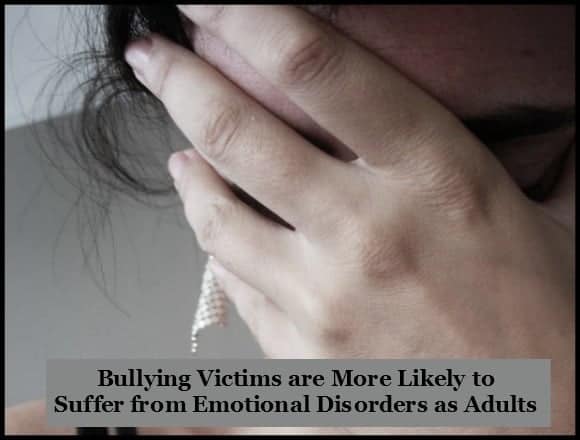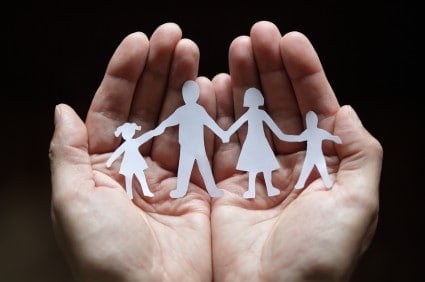The impact for bullying victims doesn’t end when a child graduates from school and gets away from the bully. A recent study found that the effects of bullying can follow children well into the adult years. It can result in depression and more cases of suicide. William Copeland, a professor at Duke University, recently published the findings of his study into the long-term effects of bullying in JAMA Psychiatry. For those who have suffered at the hands of bullies, his results really aren’t all that surprising.
Copeland’s study looked at the data of 1,420 participants. These participants were either bullying victims themselves, engaged in bullying, or both. After accounting for children who already suffered from childhood psychiatric disorders, the team looked at the prevalence of disorders that cropped up in the adult years.
Bullying victims may suffer more emotional disorders as young adults
The study found that children who were bullying victims had a higher rate of several different emotional disorders as adults. These include:
- Agoraphobia- an intense fear of having a panic attack in public. This often results in a secondary fear of leaving their own safe environment. Many people mistakenly believe that agoraphobia is a fear of going into public. However, it is really the fear of suffering an attack in public that causes sufferers to stay home whenever possible.
- Generalized anxiety or panic disorder- a pair of disorders that are often closely linked that cause the sufferer to experience a constant feeling of anxiety or overwhelming feelings of panic.
Children who were both bullying victims and bullies themselves tended to have a higher incidence of depression as well as the previous disorders. Men who were both bullies and victims were also more likely to attempt or commit suicide. What about children who were bullies themselves? According to the study, they were at a higher risk for developing antisocial personality disorder. This disorder leads to a lifetime pattern of exploiting or harming others.
Is anyone really surprised?
Studies like Copeland’s do help shed light on the long-term effects on bullying victims and provide more incentive for lawmakers to get involved in helping put an end to bullying. However, it’s hard to imagine how these results are particularly surprising. Those of us who have dealt with bullies in our lives- either as children ourselves or through witnessing our own children go through it- may feel the urge to scream out a collective “I could have told you that!”
Copeland makes one excellent point when talking about the results of the study. In an article in US News, he mentioned how therapists often talk to young adults about their relationships with their parents, but rarely ask about their relationships with peers as a child. Perhaps his study will encourage those in the mental health field to delve deeper into their patient’s background and discover the true root of disorders among young adults.
What do you think of Copeland’s study? Are you surprised to discover that bullying victims tend to suffer more emotional issues as adults?



Very sensible article, let’s put an end to bullying!..
The results of this study seem really logical. I think the most important thing to do for children who have been bullied is to try and make them understand that they weren’t bullied because of something “wrong” with them. I would imagine that the emotional disorders stem from internalizing what the bullies said about them which is sad. :(
Great Article!!! It certainly is a major issue!
This is such an informative post! Bullying is such a major issue and I am glad to see people like yourself putting a spot light on it.
What a great article. I think that there needs to be as much awareness as possible about bullying!